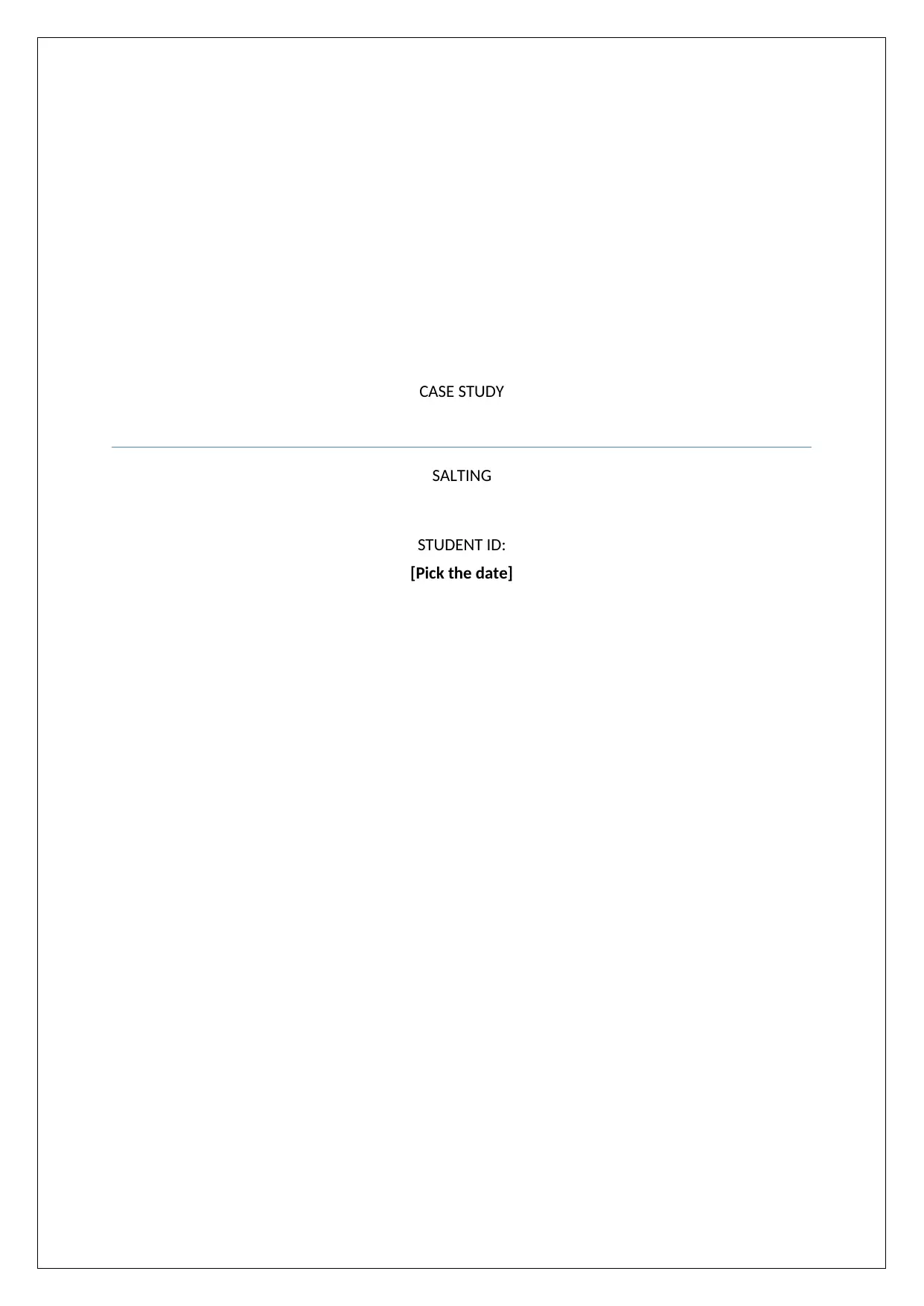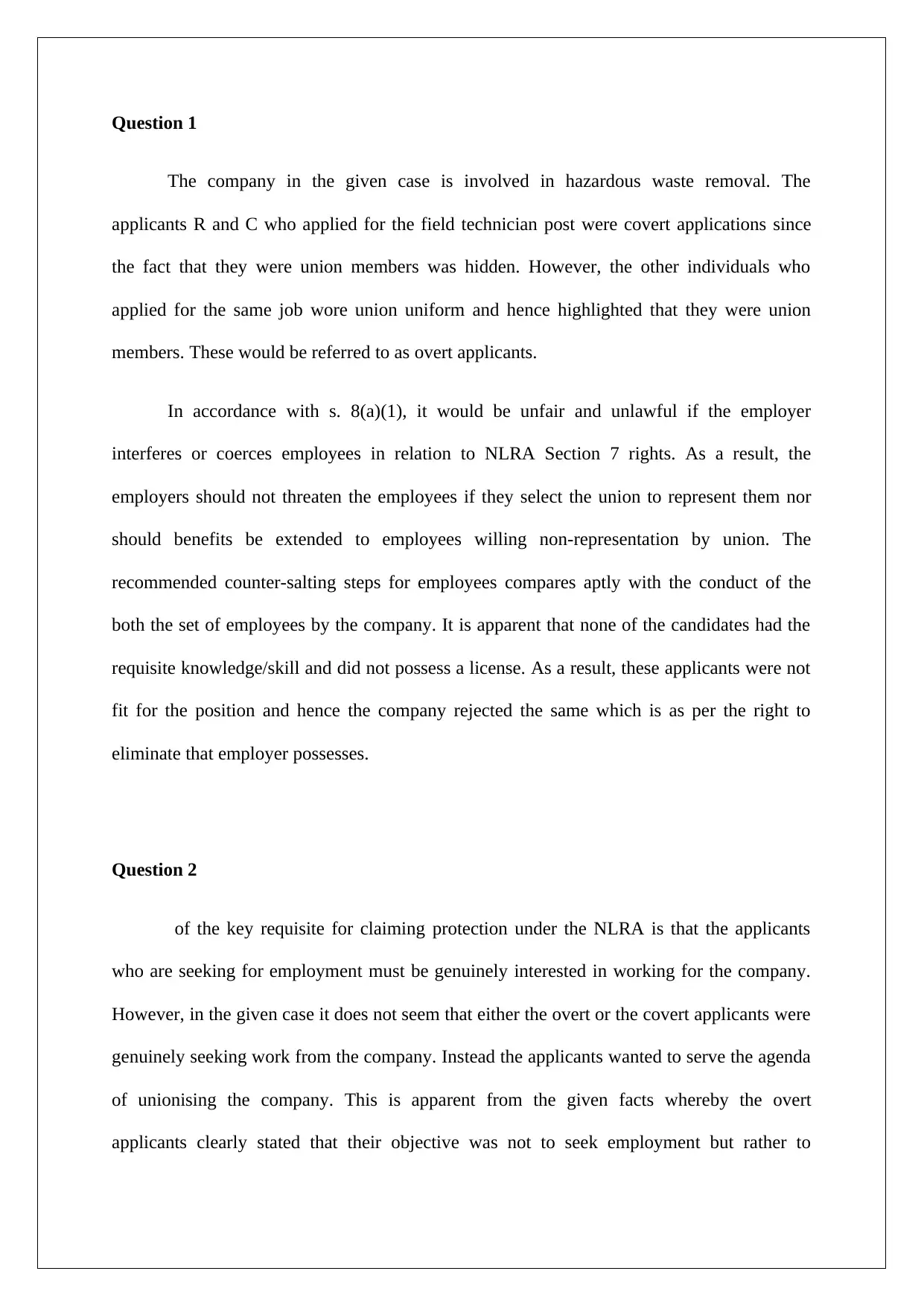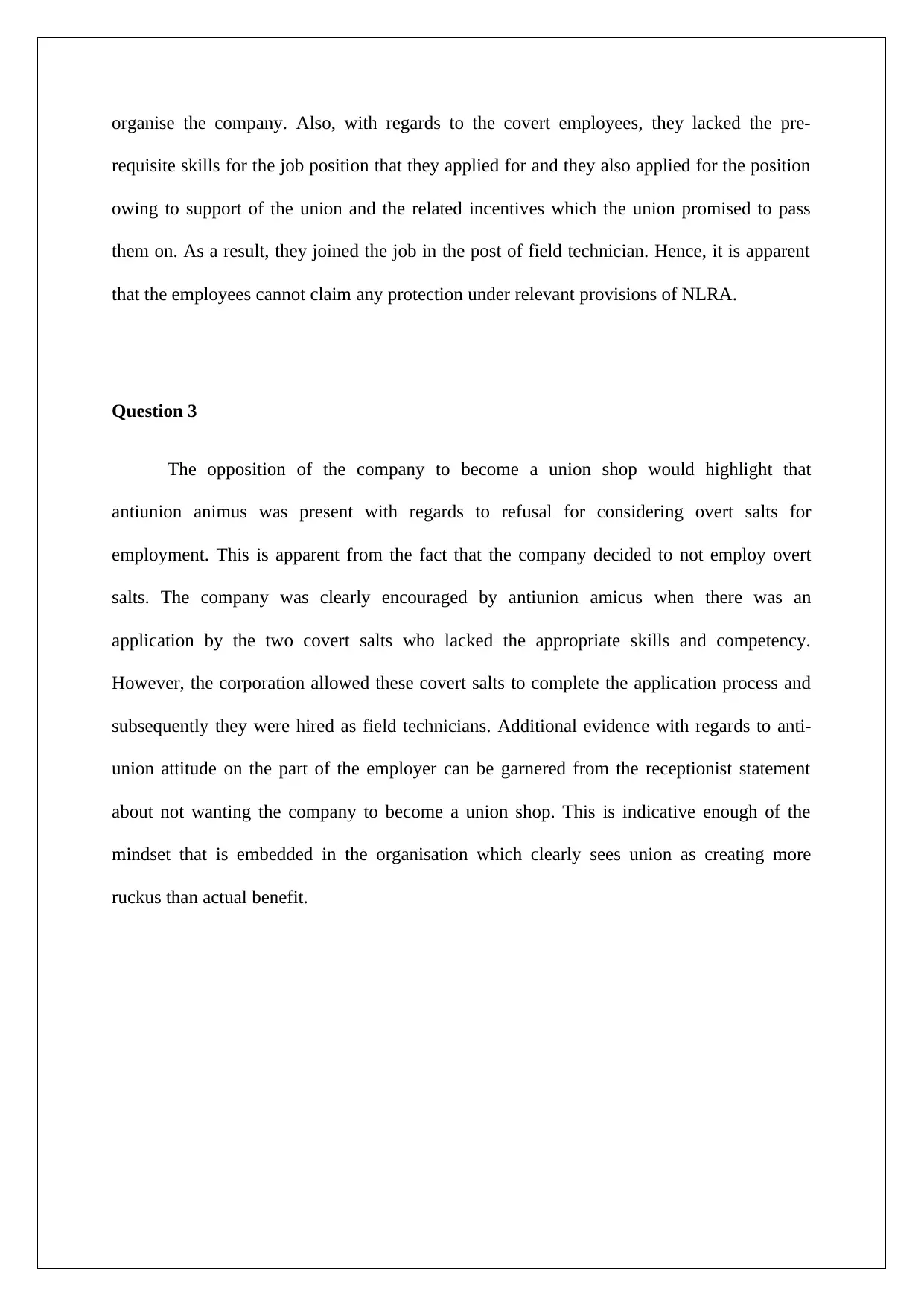Case Study: Salting, NLRA Violations, and Unionization Analysis
VerifiedAdded on 2023/06/13
|3
|550
|392
Case Study
AI Summary
This case study examines the practice of 'salting,' where union members seek employment with non-union companies to organize from within, focusing on a hazardous waste removal company. The analysis distinguishes between overt applicants (those openly displaying union affiliation) and covert applicants (those concealing it). The study addresses whether the company violated Section 8(a)(1) of the National Labor Relations Act (NLRA) by discriminating against union members. It questions the applicants' genuine interest in employment versus unionizing motives and explores evidence of antiunion animus in the company's hiring decisions, particularly regarding overt versus covert applicants. The receptionist's statement is highlighted as indicative of the company's anti-union stance. Desklib provides access to similar case studies and solved assignments for students.
1 out of 3





![[object Object]](/_next/static/media/star-bottom.7253800d.svg)